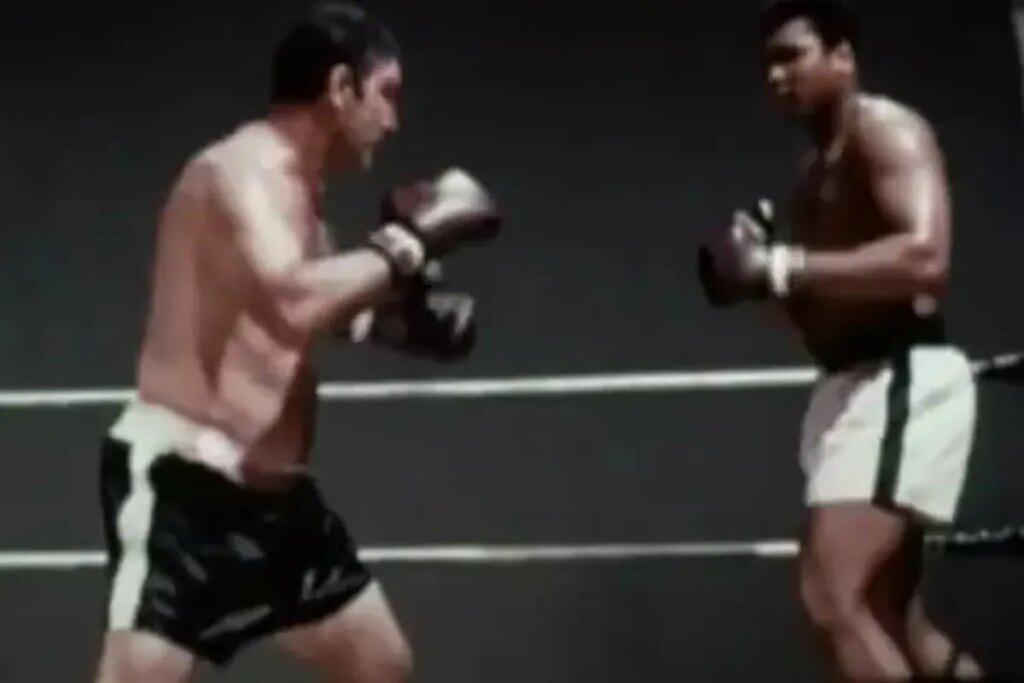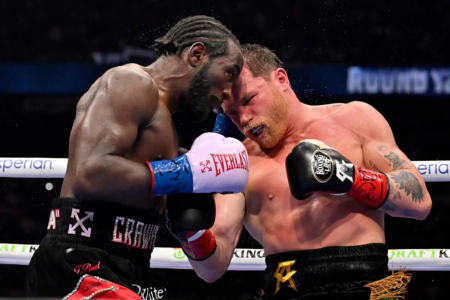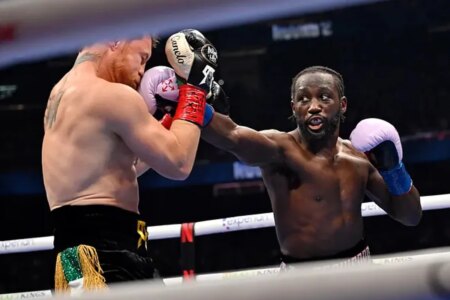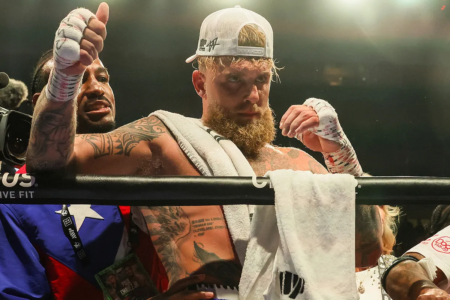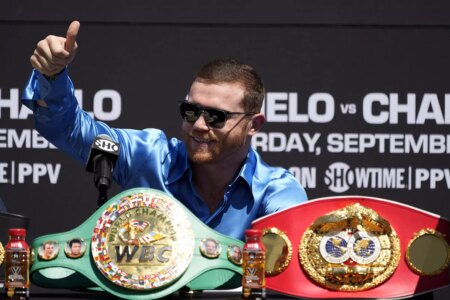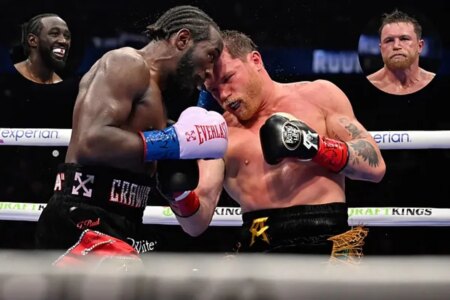It is a journalistic tradition to make lists of ‘The best in history’. A tradition, if you like, puerile because the evidence is that it is impossible to compare eras or circumstances. It would require analyzing an infinite number of variables and always, always, one more will appear. For example, in tennis we can analyze to the limit Nadal, Djokovic and Laver: their successes, their style, the incidence of materials in their game… but then we would also have to analyze that of their rivals: Would it have been the same that Rod Laver had as a rival a Roy Emerson to have a Pete Sampras…? It’s dizzying. The useful thing about these lists is that they help to preserve the memory of the great names of all time.
However, there was once a person who tried to find out scientifically, or at least in the way he understood the concept, who was the best heavyweight boxer in history, and also to do business with it. It must be recognized that Murray Woroner, a radio producer, set about it with dedication and the desire to do things well… and profitably. This story begins in 1968. We were in the midst of the space age. Along with rockets, computers, the so-called ‘electronic brains’, not yet called computers, seduced the imagination of the world. It was thought that there was nothing beyond their reach and perhaps this is indeed the case. And yet those enormous and cinematic devices (it was the time of great science fiction such as ‘2001’ or ‘Silent Running’) had much less processing power than a mobile phone today…
Woroner came up with the idea of organizing something like the Great Historical World Heavyweight Championship: he selected 16 fighters from all eras, including Rocky Marciano, Jack Johnson, Jim Corbett, Muhammad Ali and Jack Dempsey. He chose 250 boxing experts to analyze them to the fullest. They were drawn for elimination and their data was fed into a computer.
The NCR 315: 600 kilos of ‘magic’
The chosen instrument was an NCR 315. It was the latest technological breakthrough. It was the first computer capable of storing large amounts of data on magnetic tape. It was fed by punched cards and once the data of each fighter was supplied, it took about 45 minutes to provide the verdict. It had no screen. It ‘communicated’ via an IBM electric typewriter. And to operate it required a good-sized room: The central processor measured 2.66 meters long, 1.32 meters high and 0.61 meters deep. It weighed 601 kilos. The other elements were of similar dimensions, but only weighed just over 100 kilos.
The result became a radio script and was broadcast, with comments, sometimes, from the fighters themselves. An original and groundbreaking idea… that had a problem: Ali lost in the second round to Jim Jeffries and sued Woroner for one million dollars for defamation: he would never have lost to Jeffries. Jeffries had died in 1953 at the age of 78, was the world heavyweight champion in the early 20th century and was one of those involved in the search for the ‘Great White Hope’ to take the title from Jack Johnson, the first black champion.
But Woroner followed the maxim of turning problems into opportunities. First, he got Ali to settle for $10,000 and agree to continue to be involved in the development of the idea. The ‘computerized championship’ had been ‘won’ by Rocky Marciano, who had retired in 1956 as the undefeated world champion. Well, since Marciano and Ali were actually competing for the consideration of the best heavyweight of all time, he proposed that they face each other in this modality.
At the time, Ali was suspended from boxing for refusing to be drafted into the Vietnam War (“no Vietcong ever called me a ‘nigger’ [an insulting American expression for black people]. I have no problem with them“) in a decision aggravated by the spite of the conservative and generally racist media in the United States. Marciano was 45 years old. But the two were the only undefeated heavyweight champions, although Ali had been stripped of the title. It played in Woroner’s favor that an unemployed Ali needed money and that both fighters admired each other: both accepted in exchange, also, for a share of the profits of the operation. Ali was relatively fit, but Marciano lost 20 kilos to be ready for the ‘fight’.
But what was the confrontation going to be like? Well, it goes without saying that it was again by computer, but with a twist. Ali and Marciano were again studied to the limit: their blows, their reactions, their power, their biomechanics, their anthropometry… All their fights were studied and the way in which they had conducted themselves in all possible situations against all their rivals. And again all the information would be fed into an NCR 315, already RMC model to determine the winner and also the development of the fight.
Would the fight be broadcast on the radio? No. The fight would be seen! And how? In 1969, a ‘rejuvenated’ Marciano, Ali and 21 other people locked themselves in a gym in Florida. They fought 70 one-minute rounds, in the manner of sparring sessions, marking the blows – although some of them escaped, of course – staging all the possibilities of the fight and these rounds were filmed in cinema. They would be the basis for ‘The Super Fight’, the film that would be edited once the result of the fight was known and which would be distributed to 1,500 cinemas in the United States, Europe and South America. A detail: the Russian film ‘Three Seconds’ (2017), about the 1972 Munich basketball final between the United States and the Soviet Union, recreates the game basket by basket.
Woroner’s trap: the director’s cut
Evidently, the result of the fight would not be known until all the public had paid their entrance fee, as in a real fight. The contract with the exhibitors stipulated that this film, which arrived sealed at the cinemas, had to be shown only once and the film destroyed afterwards.
In fact, neither Ali nor Marciano knew the result of the fight until the film was over… And the ending was ‘indecisive’, because it can be said that regardless of what the computer determined, Woroner decided that there would be two winners. The computer determined that Marciano would win the fight by KO in the 13th round. But Woroner, in the manner of legendary – and carefree – boxing promoters such as the legendary Tex Rikard, who organized the fights of Jack Johnson against the ‘white hopes’ had wanted to cover all business options. Obviously, foreseeing all the possibilities that this primitive ‘artificial intelligence’ could determine, several possible endings of the fight were filmed. And the astute Woroner made several edits. Thus, in the United States it was Marciano who was the winner, but in European cinemas where it was shown, it was Ali who triumphed. The considerations about structural racism in the United States are up to each individual. Ali, who was furious when he saw the American result, was appeased when he saw the European one. “They probably made that machine in Alabama,” he commented humorously, alluding to that racism associated with the American ‘South’.
The brief friendship of Ali and Marciano
Ali recounted in his memoirs that knowing that Marciano had put on a toupee for the fight, trying to emulate his former image, he tried to snatch it away with some blow but failed: Rocky was still a great boxer. In the end, they both went to dinner together. They chatted amicably. Marciano asked him “Can’t I still hit?” Ali showed him the marks left by the blows that had escaped him.
It could have been the beginning of a beautiful friendship, but it was not to be. Three months after the fight, on August 31, 1969, Rocky Marciano died in a plane crash. And he never knew that he had ‘beaten’ Muhammad Ali, because the film was released on January 20, 1970.
Shortly afterwards, Muhammad Ali regained his world heavyweight title and embarked on the second part of his career, that of the Rumble on the Jungle and his first official defeat, to Joe Frazier, in 1971. Ali would eventually retire in 1981 with 56 wins and five defeats, already a legend. His ‘fight’ against Marciano was forgotten, although in his memoirs he alludes to it, as we have seen.
Despite Woroner’s demand, some copy must have escaped the required destruction. In time, ‘The Super Fight’ was shown on television and, in the 21st century, it was released on DVD as a testimony of what can rightly be known as the first incursion of ‘Artificial Intelligence’ in the world of sports.
Read the full article here





